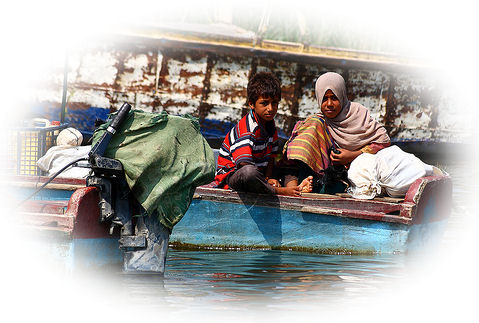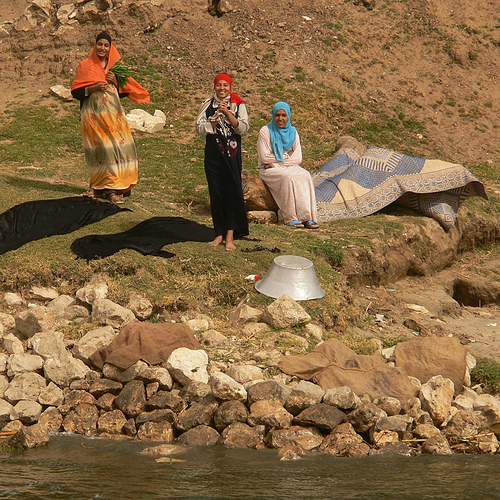


The time, energy, and investment put into the Nile Transboundary Environmental Action Project by the national and supranational organizations involved means little if there is no connection and collaboration at the local level –those men, women, and children whose lifestyles are significantly dependent upon the resources controlled by stakeholders and committee members. This is not to say that the years of commitment by the World Bank, United Nations, and NBI are irrelevant, nor does it discredit all that has been achieved. Rather, we aim to shed light on the fact that there is much more to be done, much more to be considered when looking at the grassroots populations' reliance on this main source of life in the region.

The following is one of the main goals outlined by the NTEAP at the outset of the project:
Local level conservation initiatives supported through micro grants, enhanced public awareness, networking of secondary schools, universities and research institutions, with an enhanced understanding of transboundary soil erosion".
The Socio-Economic Development and Benefit Sharing Project (SDBS), a sub-mission of the Nile Basin Initiative, was established to incorporate the needs and proposals of local communities within the region into the overarching goal of the NBI. It seeks to relieve the burdens of poverty through a committee based program of research and development. Networking with professionals, economists, technical experts, NGOs, and citizens hoped to produce a concise and reasonable scheme to curb the hardships and deprivation of the people throughout the basin. Research was conducted by participating institutions from each respective country from February to July of 2007. Researchers honed in on Water/Natural Resources Management, Food, Security, Energy, and Cross Border Trade and Benefit Sharing. The outcome of these investigations was a section dedicated to poverty in the SDBS Annual Plan for 2008.

The Nile Basin Discourse (NBD) is another institution devoted to the grassroots involvement in the sharing and sustainability of the Nile Basin resources. In December of 2009, at a conference held by the NBD concerning civil society's role in the issues at hand, the Regional Coordinator, Ms, Sarah Niagaga declared,
"When NBI started the voice of civil society was not there – now it is".
The involvement of groups like NBD and Voice of the Nile (VON), in addition to the Initiative's own SDBS provides an influential and powerful outlet through which individuals and community organizations are able to have a voice in the planning process for their lands.Still, the fact that local voices are being heard is simply the initial step in this specific goal of the project. At that same conference, Professor Ali Mazrui, Director of Global Studies at Binghamton University stated:
"We hear the cry for change along the shores of the Nile; we hear the cry for unity along the lakes€¦ The struggle needs to continue, the struggle needs to intensify – let us all pull together to make this happen."
2009 was meant to be the close of the initial phase of NTEAP. Why are the advocates, then, only just now preaching on the greatness of relief which is yet to come?It is a known fact that through transboundary cooperation and knowledge sharing, through UN involvement, and through the investment of the World Bank, those countries which constitute the Nile Region are making strides towards modern agricultural advances, clean electricity, and solid management of the environment – all developments which, in turn will benefit the local populace. However, the issue of local people should not be a consequence of environmental, economic, or political goals; rather the well-being of those communities whose everyday lives are affected by the decisions of committees should have been at the forefront of the NTEAP, and subsequently NBI proposal from the very beginning.
For more information concerning the Voice of the Nile and the Nile Basin Discourse or to get involved, please visit their website.
image courtesy of Sustainable Global Gardens